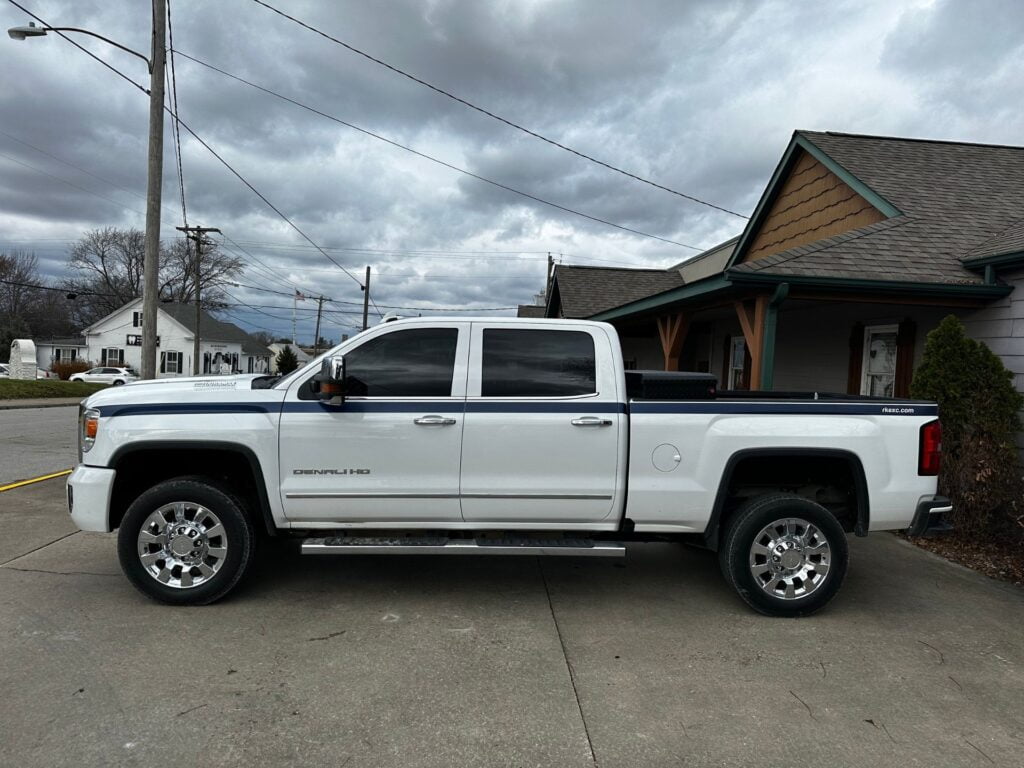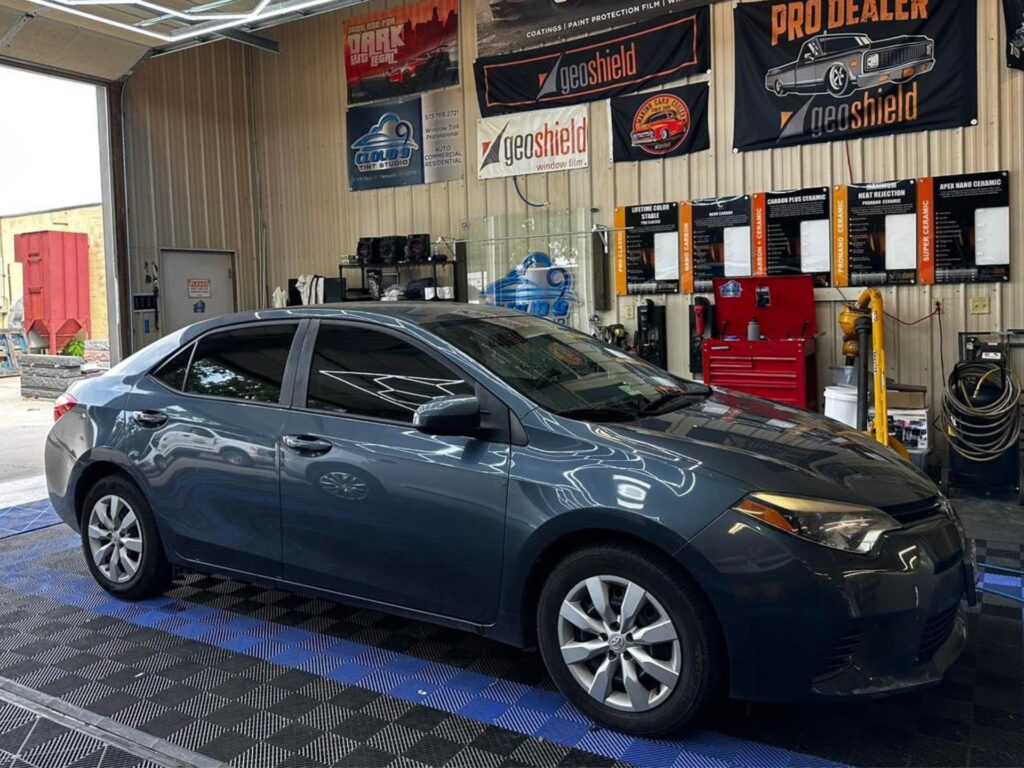Window tinting is a popular automotive modification that offers various benefits, including heat reduction. In this article, the expert team at Cloud 9 Tint Studio and Auto Spa will explore the effects of window tinting on heat reduction, how it works, and other benefits it provides. If you’re considering tinting your vehicle’s windows, read on to discover how it can help you stay cool and comfortable during hot summer days.
Can Window Tinting Reduce Heat?
Yes, window tinting can help to minimize heat inside your car. The tint coating functions as a barrier, preventing and reflecting a substantial amount of heat from the sun. Tinting helps keep the interior cooler by minimizing the heat that enters through the windows, making your driving experience more enjoyable.
The type and grade of window tint film used determines the effectiveness of heat reduction. High-quality films with enhanced heat-rejection qualities can minimize heat transfer dramatically, resulting in a more comfortable and energy-efficient driving experience.
Window tinting functions through two primary mechanisms: absorption and reflection. Tint films absorb and dissipate some of the sun’s heat energy before it enters the vehicle. A large quantity of solar radiation is also reflected by the window tint layer, preventing it from reaching the glass and heating the interior.
How Does Window Tinting Reduce Heat?

Window tinting works primarily through two ways to minimize heat: absorption and reflection. Tint films absorb and dissipate some of the sun’s heat energy before it enters the vehicle. A large quantity of solar radiation is also reflected by the window tint layer, preventing it from reaching the glass and heating the interior.
The absorption process occurs when the window tint film absorbs infrared (IR) energy from the sun. The heat we experience from the sun is caused by infrared radiation. The tint film comprises dyes, pigments, or metalized layers that absorb infrared radiation and convert it to harmless energy or dissipate it as heat. This procedure reduces the heat entering the vehicle, keeping the interior colder.
Another important part of heat reduction in window tinting is reflection. The tint film reflects a substantial amount of solar light, including ultraviolet (UV) and infrared (IR) rays. This reflection keeps radiation from passing through the glass and heating the interior. The tint film helps maintain a more comfortable temperature inside the car by reflecting sun energy.
The specific heat reduction capabilities of window tinting are determined by various factors, including the type of tint film used, the level of darkness, and the quality of installation. High-quality heat-rejection window tint films can considerably limit heat transfer into the car, creating a cooler and more comfortable atmosphere for the driver and passengers.
What Other Benefits Does Window Tinting Provide?
In addition to heat reduction, window tinting offers several other benefits that enhance your driving experience and protect your vehicle.
UV Radiation Protection
Window tint films can block a significant percentage of harmful UV rays. These rays are known to cause skin damage, premature aging, and even skin cancer. By blocking UV radiation, window tinting helps protect you and your passengers from the harmful effects of the sun’s rays. It also helps prevent fading, cracking, and discoloration of upholstery, dashboard, and other interior components.
Glare Reduction
Tinted windows can reduce glare from direct sunlight and oncoming headlights. Glare can be a significant distraction while driving, impairing visibility and causing eye strain. By reducing glare, window tinting improves visibility and enhances driving comfort, especially during bright sunny days or night driving.
Privacy and Security
Tinted windows provide increased privacy by reducing the visibility of the vehicle’s interior. They make it more challenging for people outside to see inside your vehicle, enhancing your privacy and security. This is particularly beneficial when you have valuable items or personal belongings in your car.
Shatter Resistance
In the event of an accident or impact, the tint film can hold shattered glass together. This helps reduce the risk of injuries from flying glass shards. The film acts as a protective layer, preventing the glass from scattering and potentially causing harm to the vehicle occupants. This added safety benefit makes window tinting a valuable option for improving the overall safety of your vehicle.
Considering these additional benefits, you can see that window tinting offers more than just heat reduction. It enhances your driving experience, protects your health and well-being, and improves the safety and security of your vehicle.

The Best Window Tinting In Perryville, MO
For top-quality window tinting services in Perryville, MO, Cloud 9 Tint Studio and Auto Spa is the go-to destination. Located at 111 South West St, Perryville, MO, 63775, our expert team offers professional window tint installations using high-quality films with excellent heat-rejection properties. With our expertise and commitment to customer satisfaction, you can trust Cloud 9 Tint Studio and Auto Spa to enhance your vehicle’s comfort, style, and protection. Our skilled technicians know the latest tinting techniques and will ensure a flawless installation.
Cloud 9 Tint Studio and Auto Spa prides itself on using high-quality window tint films that offer exceptional heat reduction and other benefits. We work with reputable brands and provide various tint options to suit your needs and preferences. Whether you’re looking for maximum heat rejection, a specific tint darkness level, or a particular aesthetic, our team can guide you in choosing the right tint for your vehicle.
